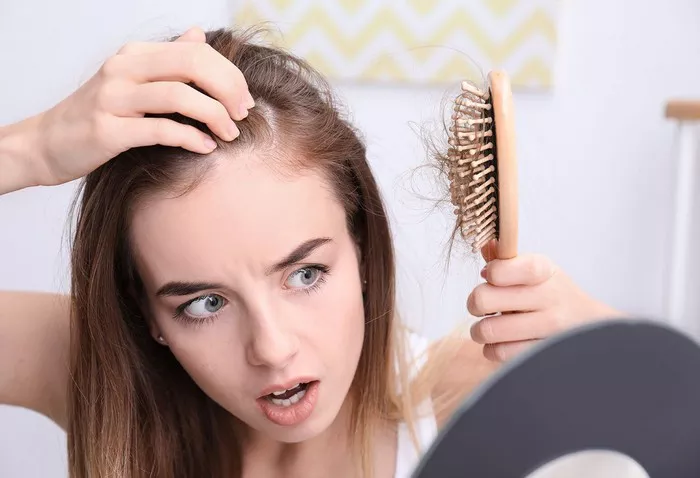Hair loss has become a widespread concern affecting people of all ages and genders. While shedding some hair is a natural part of aging, factors such as pollution, poor lifestyle choices, and stress have worsened the situation for many individuals. Excessive or sudden hair loss can be distressing and may stem from a variety of factors, including genetics, environmental influences, nutritional deficiencies, and underlying medical conditions. Identifying the root cause is essential for effective treatment and restoring healthy hair.
Dr. Anandita Sarkar, Medical Director at AAYNA Clinics & Clinikally, shared insights about common causes of hair loss and how to address them.
Telogen Effluvium: Temporary Hair Shedding
Telogen effluvium is a condition where hair follicles prematurely enter the resting phase, leading to significant hair loss over a short period. This often occurs following major changes in the body, such as extreme stress, weight loss, surgery, or pregnancy. Hair loss in this phase is typically temporary, and hair growth resumes once the underlying trigger is resolved.
Managing stress and maintaining a balanced diet can help accelerate recovery. In severe cases, a doctor may recommend supplements such as biotin, vitamin D, and B12 to support hair growth. Minoxidil may also be prescribed as a topical treatment to stimulate regrowth.
Androgenic Alopecia: Genetic and Hormonal Factors
Androgenic alopecia, commonly known as male or female pattern baldness, is a genetic condition that progresses gradually. It is linked to hormonal changes, particularly the effect of dihydrotestosterone (DHT) on hair follicles. In men, this condition typically starts with a receding hairline or thinning at the crown, while women may experience diffuse thinning throughout the scalp.
Treatment for androgenic alopecia can be complex, often involving topical solutions like minoxidil to slow hair loss and stimulate growth, along with oral medications to reduce DHT levels. In more advanced cases, patients may consider hair transplant surgery or platelet-rich plasma (PRP) therapy.
Stress-Induced Hair Loss
Stress is a major contributor to hair loss in both men and women. Emotional or physical stress—such as major life events, surgery, or illness—can trigger hair shedding. While stress-induced hair loss is often temporary, it can last for several months, causing concern.
To manage stress-related hair loss, it is crucial to incorporate stress-reducing practices such as meditation, yoga, spending time outdoors, and getting adequate sleep. Additionally, a diet rich in essential nutrients like biotin, omega-3 fatty acids, and vitamin D can promote regrowth and stabilize the hair cycle.
Medications and Hair Loss
Certain medications, especially those used in cancer treatments like chemotherapy, can lead to significant hair loss. Chemotherapy-induced hair shedding is common and can severely affect hair follicles during treatment.
Nutritional Deficiencies
Vitamin deficiencies, particularly in vitamin B12, vitamin D, and ferritin, are another common cause of chronic hair loss. A blood test can help identify these deficiencies, and doctors typically recommend supplements to restore healthy hair growth. Addressing these deficiencies under medical supervision can strengthen hair and support regrowth.
Age-Related Hair Loss
As we age, hair loss becomes more common. Even in the absence of hormonal imbalances or nutritional deficiencies, the natural aging process causes hair follicles to shrink, leading to thinner hair and a slower growth rate.
To combat age-related hair thinning, incorporating nourishing hair serums and treatments into your daily routine can help strengthen hair and support growth, ensuring healthier, more resilient hair over time.
Conclusion
Hair loss is an increasingly common concern that can significantly impact self-esteem. As Dr. Sarkar points out, understanding the root cause of hair loss is crucial for finding effective treatments. Consulting a dermatologist is key to identifying the underlying issues and selecting appropriate remedies, helping individuals regain healthy, fuller hair.
Related topics:
- Protect Your Hair from Pollution: The Benefits of Henna for Winter Hair Care
- Quirónsalud Marbella Hospital Sets a New Standard in Hair Transplantation
- Did Lyle Menendez Wear a Wig? The Truth Behind His Hair Loss Revealed


